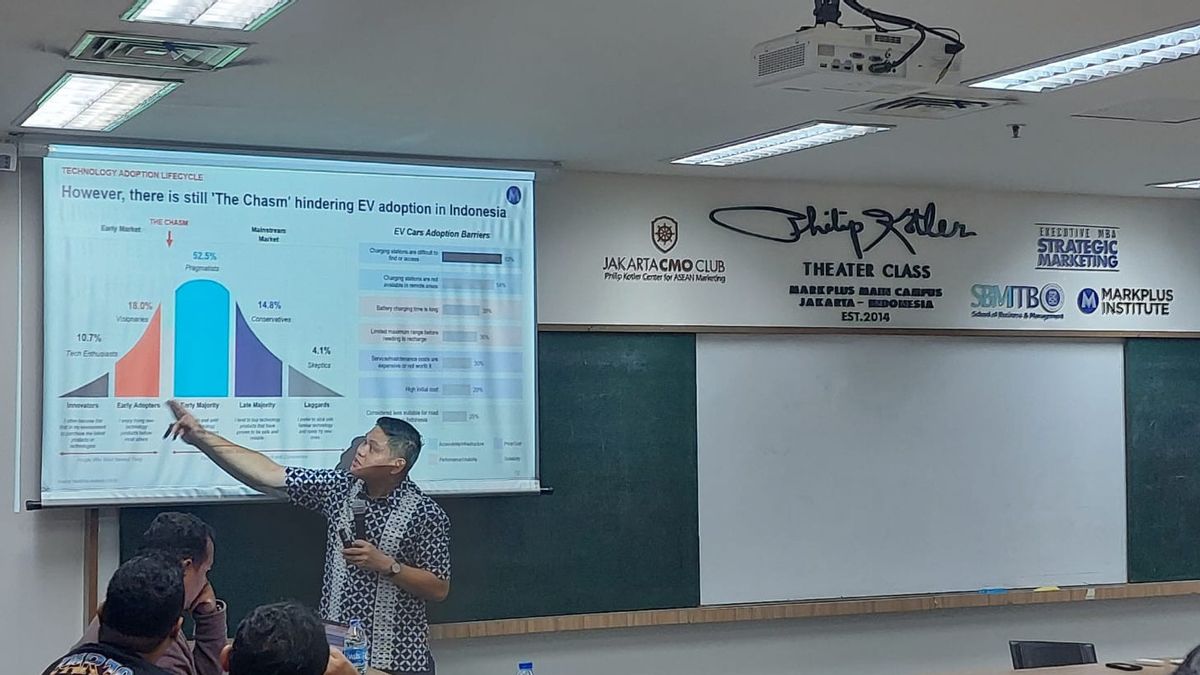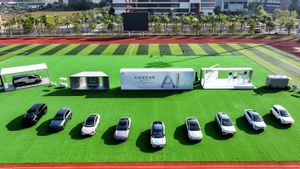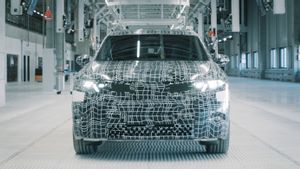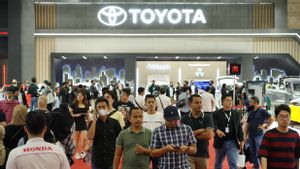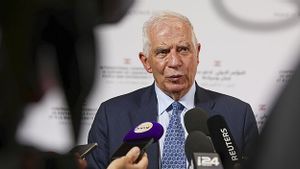JAKARTA - The Indonesian automotive industry is currently facing challenges that affect consumer purchasing power. Even current new car sales tend to stagnate in recent years.
Based on data from the Association of Indonesian Automotive Industries (Gaikindo), in the past 10 years, domestic car sales ranged from 1 million units per year.
Reflecting on 2023, retail sales of vehicles in that year reached 998,059 units, and this has decreased by 1.5 percent compared to 2022 which reached 1,013,582 units. Entering 2024 for the January-September period, retail sales are still at 657,223 units. Gaikindo has even revised the sales of cars this year to only 850 thousand units.
"The economic link that is the main obstacle to purchasing new cars in Indonesia is quite significant," said CEO MarkPlus Inc and Marchairs Iwan Setiawan, at the Automotive Industry Roundtable with the theme Navigating The Future of The 4W Industry on Wednesday, November 6, at the Philip Kotler Theater, MarkPlus Main Campus, Jakarta.
In more detail, he revealed, based on studies conducted and already validated with adjustments based on the characteristics of each brand so as to provide a perspective that is in line with market dynamics in general, with a total of 169 consumers considering the price of new cars to continue to increase.
"Our study shows that 56 percent of consumers think new car prices continue to rise beyond their income capabilities, 50 percent feel the tax imposed is too high, while 37 percent face a burdensome leasing rate, and another 26 percent prefer used cars at the same price. This underscores the importance of increasing affordability and value in the new car market to attract consumers," he added.
SEE ALSO:
He also said that the main challenges faced were the increase in new car prices which were not balanced with the growth in household income, as well as the increase in Bank Indonesia (BI) interest rates which affected people's purchase intentions through vehicle credit financing.
In 2024, the price of new cars has increased 37 percent since 2014, while household income has only increased by 28 percent in the same period. This makes the price of new cars higher than the average annual household income, which suppresses purchasing power and causes consumers to be more selective in choosing vehicles.
"Toyota dominates the hybrid segment with a very strong market share, reaching 67 percent. Meanwhile, in the battery electric vehicle (BEV) segment, Wuling leads with a market share of 47 percent. This shows Toyota's dominance in the hybrid market and high consumer acceptance of Wuling in the electric vehicle market, reflecting an interesting trend in Indonesia's consumer preferences," he explained.
In addition, another cause is the vehicle tax which is considered to make prices increase, and increasingly out of reach. Interest for leasing is also felt high considering that the majority of vehicle sales in Indonesia are indeed through a credit scheme.
On the other hand, used car sales are also now an alternative. In fact, many consumers rate the existing funds to buy new cars, but consumers can get more if they buy used cars.
"The sale of used cars is an alternative, so it's better for used cars but can go up in class," he concluded.
The English, Chinese, Japanese, Arabic, and French versions are automatically generated by the AI. So there may still be inaccuracies in translating, please always see Indonesian as our main language. (system supported by DigitalSiber.id)
